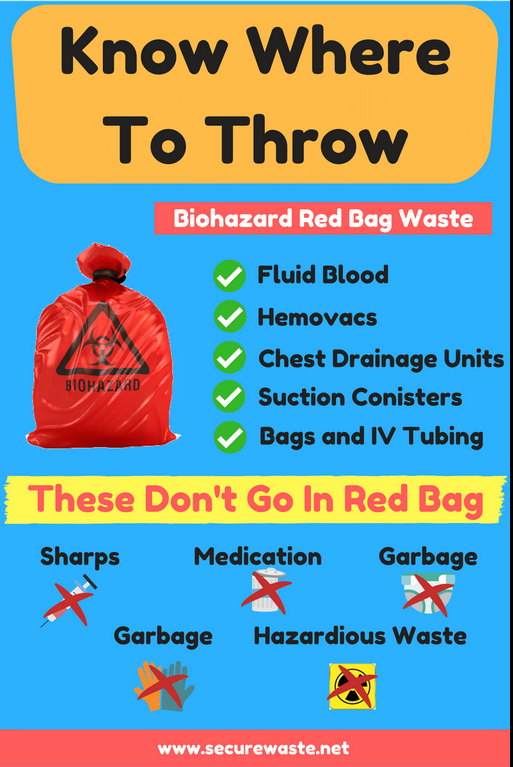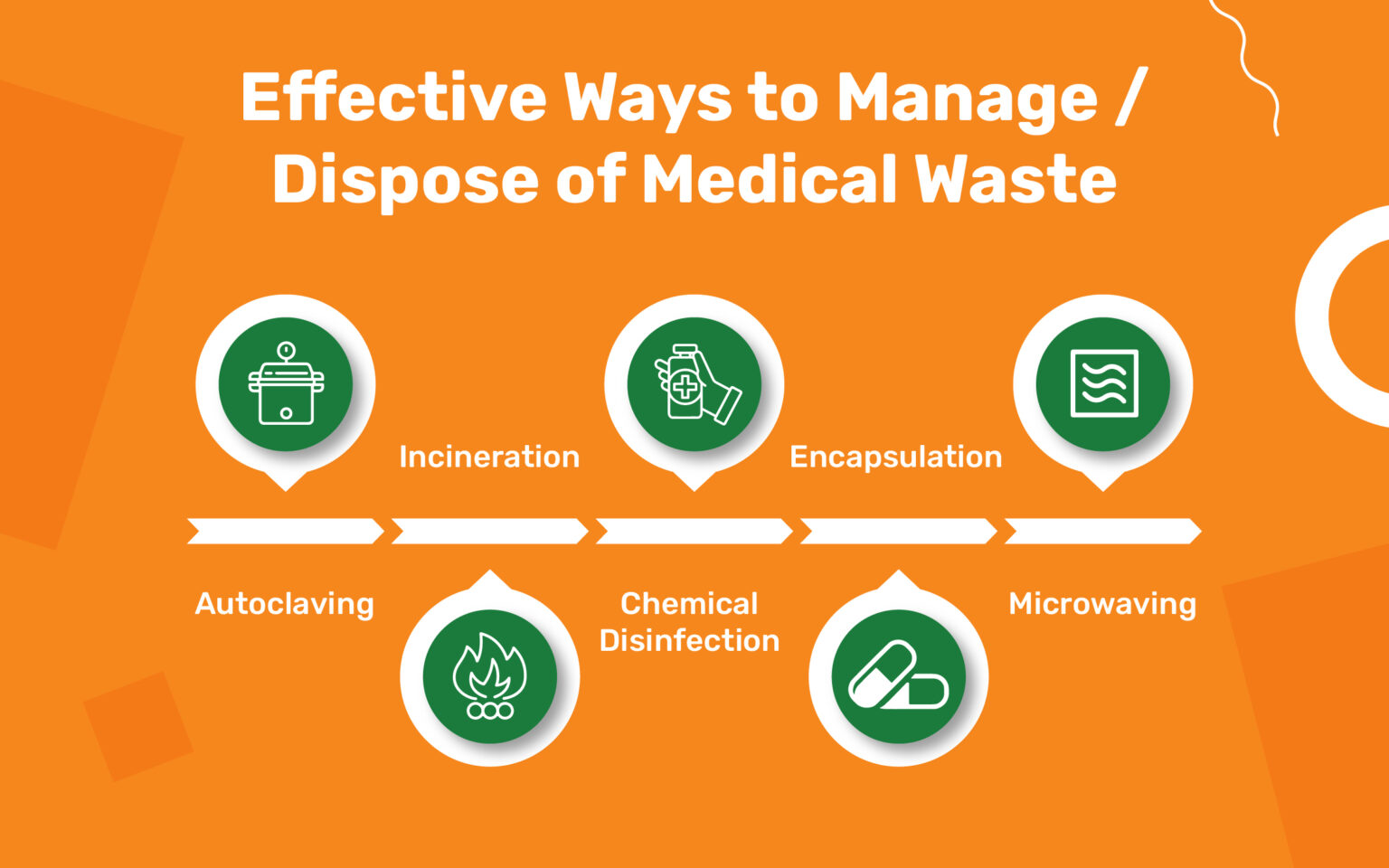Guardians of Cleanliness: Citizen Medical Waste Removal Service for Your Comfort
Guardians of Cleanliness: Citizen Medical Waste Removal Service for Your Comfort
Blog Article
Keep Ahead of Laws: Professional Suggestions on Medical Waste Disposal
In a globe where the health care sector is regularly advancing, it is vital for medical centers to remain in advance of laws when it concerns the correct disposal of clinical waste. With rigorous standards and regular regulatory modifications, it can be testing to browse the complexities of this process. With skilled guidance, facilities can make certain compliance and minimize threats linked with improper waste disposal. From recognizing the different groups of medical waste to applying the best collection and segregation methods, this discussion will certainly give actionable tips and important understandings to help facilities remain ahead of regulations in the ever-changing landscape of clinical waste disposal.
Recognizing Medical Waste Categories
Understanding medical waste categories is crucial for proper disposal and monitoring in healthcare facilities. Medical waste refers to any waste produced by health care tasks that may posture a threat to public wellness or the atmosphere. It is crucial to categorize clinical waste properly to guarantee its safe handling, disposal, transport, and therapy.
There are several categories of clinical waste that health care facilities need to be acquainted with. The most typical classifications consist of infectious waste, pathological waste, sharps waste, pharmaceutical waste, and chemical waste. Each category has details standards and laws for its appropriate monitoring and disposal.
Infectious waste includes products polluted with blood or various other bodily liquids, such as handwear covers, gowns, and research laboratory cultures. Pathological waste describes human cells, body organs, or body components that call for special handling and disposal. Sharps waste includes made use of needles, syringes, and various other sharp things that can create injury and send infections. Pharmaceutical waste comprises run out, unused, or contaminated medications that require mindful handling and disposal. Last but not least, chemical waste consists of solvents, disinfectants, and other chemical substances made use of in healthcare centers.
Remaining Up-To-Date With Regulatory Changes
Remaining existing with regulatory changes is important for healthcare facilities to make sure conformity and correct administration of medical waste disposal. medical waste removal near me. With policies constantly progressing, it is essential for healthcare centers to remain up-to-date to avoid charges, fines, and prospective damage to the atmosphere and public health
To stay ahead of regulative modifications, health care facilities ought to develop a system for surveillance and monitoring updates. This can be done by registering for regulatory newsletters, going to seminars and workshops, and proactively taking part in industry organizations. In addition, facilities must assign a team member or team in charge of staying notified and disseminating info to pertinent stakeholders.
Routine interaction with regulative agencies is additionally vital. Healthcare facilities need to establish partnerships with regional, state, and federal agencies to ensure they are mindful of any adjustments in policies that might impact their waste management methods. This can be done via regular conferences, involvement in public comment periods, and proactive involvement with regulatory firms.
Additionally, health care facilities ought to consider partnering with waste management companies that specialize in clinical garbage disposal (medical waste disposal services with WasteX). These business are commonly fluent in the most up to date laws and can offer guidance and assistance to ensure conformity
Applying Appropriate Collection and Partition Techniques
To effectively take care of clinical waste disposal, health care centers should develop proper collection and segregation approaches in accordance with regulatory guidelines. Implementing these techniques makes sure the risk-free handling and disposal of potentially harmful products, secures the atmosphere, and reduces the risk of injuries and infections to health care employees and the public.
Proper collection and partition approaches include using marked containers and identifying systems. Health care centers should offer plainly identified containers for different kinds of medical waste, such as sharps, contagious waste, pharmaceutical waste, and non-hazardous waste. These containers should be color-coded and clearly significant to prevent confusion and promote simple recognition.
Furthermore, medical care centers need to educate their staff on the appropriate procedures for accumulating and setting apart medical waste. This consists of educating them on the different sorts of waste, the appropriate containers to utilize, and the value of complying with laws and guidelines. Regular training sessions and refresher course training courses must be carried out to ensure that team members stay up-to-date on finest techniques.
Furthermore, medical care centers must establish a system for normal collection and disposal of medical waste. This may involve partnering with accredited waste monitoring companies that focus on medical waste disposal. These business will guarantee that the accumulated waste is moved and gotten rid of in compliance with regulative needs.
Choosing the Right Disposal Methods

Incineration is one of one of the most typical and effective approaches for disposing of specific types of medical waste, such as pathological waste and sharps. It includes the regulated burning of waste at heats, minimizing it to ash. Nevertheless, incineration can launch unsafe contaminants right into the air and add to air contamination.

Various other disposal approaches include chemical therapy, microwave therapy, and landfilling. Chemical therapy entails making use of chemicals to neutralize the waste and decontaminate. Microwave therapy uses microwave energy to warmth and decontaminate the waste. Landfilling entails hiding the waste in a designated landfill location (medical waste disposal services with WasteX). However, landfilling needs to be the last resource as a result of the prospective danger of contamination to dirt and groundwater.
Making Certain Compliance With Documents and Training
After very carefully considering the ideal disposal approaches for clinical waste, medical care facilities must guarantee compliance with guidelines and reduce environmental effect by implementing efficient paperwork and training procedures. This action is essential in maintaining a safe and sustainable atmosphere for both healthcare employees and the basic public.

Training is similarly important in ensuring compliance with guidelines. Health care workers who take care of clinical waste should receive proper training on waste segregation, taking care of, and disposal treatments. This training needs to cover topics such as the appropriate use of personal protective devices, recognition of different sorts of waste, and the appropriate disposal approaches for every waste classification. By offering comprehensive training, healthcare facilities can empower their personnel to make educated choices and decrease the threat of inappropriate waste disposal.
Final Thought
In verdict, remaining ahead of guidelines in clinical waste disposal is important for health care centers. medical waste removal services. Understanding the various categories of medical waste, remaining updated with regulative modifications, applying proper collection and segregation techniques, selecting the proper disposal techniques, and ensuring compliance through documents anonymous and training are all important actions. By following these standards, health care organizations can successfully get rid of and manage of clinical waste in a liable and risk-free way
From understanding the different classifications of medical waste to implementing the appropriate collection and partition techniques, this conversation will certainly supply valuable understandings and actionable tips to aid centers stay ahead of laws in the ever-changing landscape of clinical waste disposal. - medical waste disposal services with WasteX
The most typical groups consist of contagious waste, pathological waste, sharps waste, pharmaceutical waste, and chemical waste. Medical care centers must provide clearly classified containers for various types of medical waste, such as sharps, transmittable waste, pharmaceutical waste, and non-hazardous waste. Health care centers ought to develop an extensive system to record and track all elements of medical waste disposal, including types of waste produced, quantities, and disposal techniques used. Health care workers who handle clinical waste needs to obtain proper training on waste partition, dealing with, and disposal procedures.
Report this page